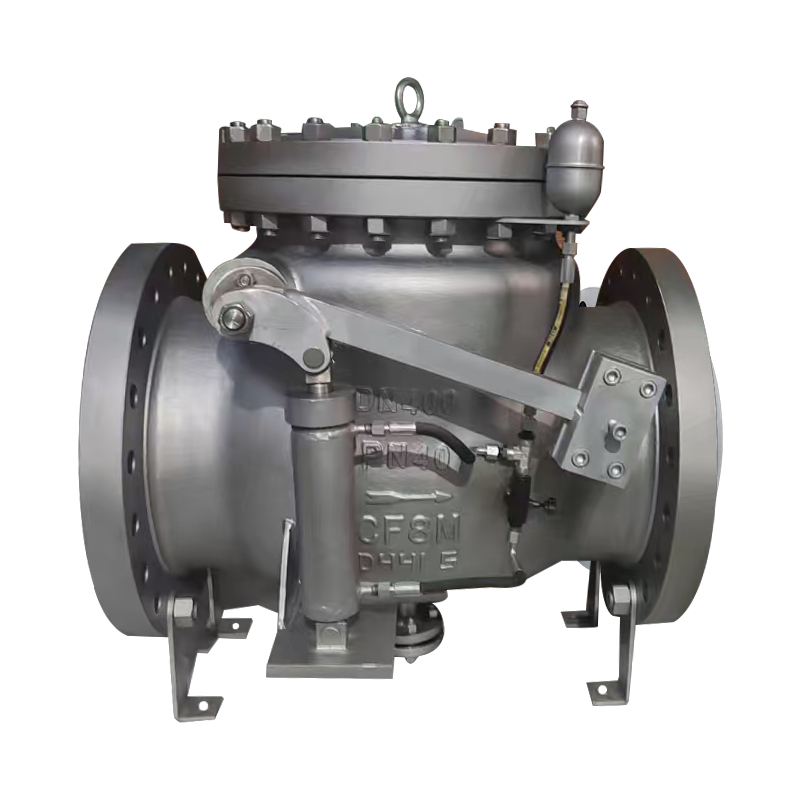
The Chemical Resistant Carbon Steel Check Valve is widely used in industries such as chemical processing, oil and gas, water treatment, and power generation. Its ability to withstand both chemical exposure and mechanical stress makes it a dependable choice in environments where durability and flow control are priorities.

One of the main advantages of the Chemical Resistant Carbon Steel Check Valve is its material composition. Carbon steel offers strong mechanical properties, including high tensile strength and impact resistance. When treated with chemical-resistant coatings or internal linings, carbon steel becomes suitable for handling a range of aggressive fluids such as acids, solvents, and hydrocarbons. This combination of strength and chemical resistance extends the service life of the valve and helps reduce maintenance needs.
The valve operates automatically, opening with forward flow and closing when the flow reverses. This simple mechanism does not require external power or manual intervention, making the Chemical Resistant Carbon Steel Check Valve suitable for remote or hard-to-reach locations. Its reliability in backflow prevention is essential for protecting pumps, compressors, and other equipment from potential damage caused by reverse flow or pressure surges.
In chemical plants, the Chemical Resistant Carbon Steel Check Valve is often installed in pipelines that handle corrosive liquids or gases. For example, it may be used in lines transporting sulfuric acid or chlorine-based compounds, where traditional valves might degrade over time. By incorporating this valve into the system, operators can ensure consistent flow control without compromising safety or system integrity.
Another important application is in wastewater treatment facilities. Here, the Chemical Resistant Carbon Steel Check Valve prevents contaminated water from flowing backward into clean water lines or sensitive equipment. The valve's durability in chemical-laden environments makes it ideal for such operations, where exposure to aggressive cleaning agents and fluctuating pH levels is common.
The Chemical Resistant Carbon Steel Check Valve is also used in refineries and petrochemical installations. These facilities require valves that can handle high temperatures, elevated pressures, and corrosive substances. Carbon steel check valves with proper resistance properties provide a balance between performance and cost-effectiveness. Their robust design allows for extended operation under demanding conditions with minimal performance degradation.
In addition to material and chemical compatibility, the design of the Chemical Resistant Carbon Steel Check Valve contributes to its performance. These valves may come in swing, lift, or ball types, depending on the specific application needs. Each design offers different flow characteristics and pressure drop behavior. For instance, swing check valves are suitable for horizontal flow and low-pressure drops, while lift types may be preferred in vertical pipelines with higher pressures.
Proper selection and installation of the Chemical Resistant Carbon Steel Check Valve are crucial to achieving performance. Factors such as fluid type, temperature, pressure, and system layout must be evaluated. It's important to choose a valve that meets the operating conditions and industry standards applicable to the intended use.
Maintenance is typically straightforward, especially when valves are installed with accessibility in mind. Periodic inspection of sealing surfaces and internal components helps maintain function and detect wear before it affects system performance. Some versions of the Chemical Resistant Carbon Steel Check Valve include replaceable internals, allowing for quick repairs without full valve replacement.

